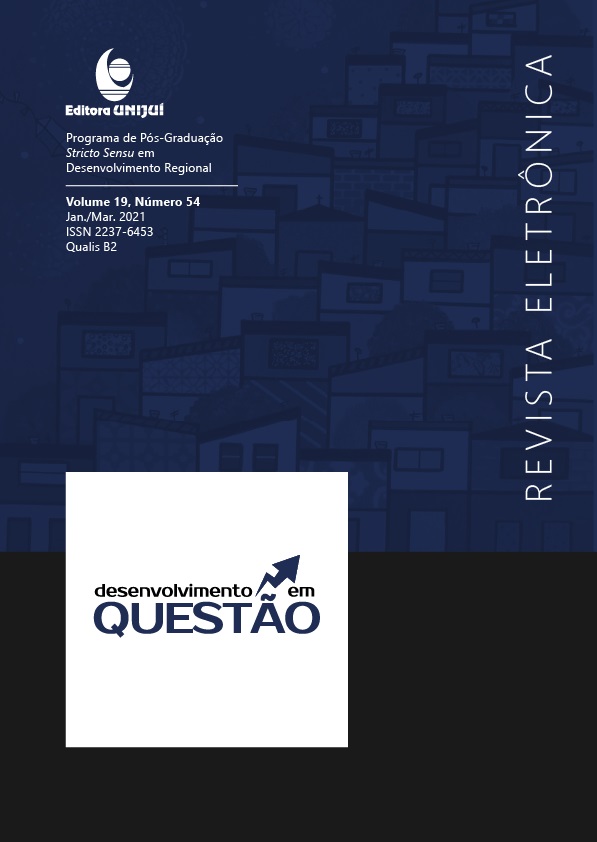ORGANIC PRODUCTION IN BRAZIL FROM THE POINT OF SUSTAINABLE DEVELOPMENT
DOI:
https://doi.org/10.21527/2237-6453.2021.54.164-184Keywords:
Family Farming. Sustainable Development. Public Policies. Organic Production.Abstract
In view of the socio-environmental theme and the browsing bumber of consumes concerne Wirth the quality of food, many countries have dedicated efforts to actions aimed at organic production to meet these demands. In Brazil, several public policies have been implemented to promote and regulate organic and agroecological production. And, this study aimed to analyze the impact of the National Policy on Agroecology and Organic Production - NPAOP on organic production in the country, as well as its contribution to sustainable development and family farming. For this purpose, we sought to identify the advances that have occurred in this area, based on data analysis from the Agricultural Census of the years 2006 and 2017. The results show that NPAOP proposes to meet the social, economic and environmental dimensions of sustainability, With less an emphasis on the economic pillar. Moreover, the comparative analysis of data from the Census of Agriculture showed a reduction in the bumber of employed persons and the bumber of establishments, which, coupled Wirth the increase in the use of pesticides, are consistent Wirth previous studies regarding the challenges faced by family farming and sustainable forms of production. However, the contribution of the policy is undeniable, because even in the face of existing barriers and pressures, organic production grew over the period.
Downloads
Published
How to Cite
Issue
Section
License
By publishing in Revista Desenvolvimento em Questão, authors agree to the following terms:
All works are published under the Creative Commons Attribution 4.0 International License (CC BY 4.0), which allows:
Sharing — to copy and redistribute the material in any medium or format;
Adaptation — to remix, transform, and build upon the material for any purpose, even commercially.
These permissions are irrevocable, provided that the following terms are respected:
Attribution — authors must be properly credited, a link to the license must be provided, and any changes made must be indicated.
No additional restrictions — no legal or technological measures may be applied that legally restrict others from doing anything the license permits.
Notices:
The license does not apply to elements that are in the public domain or covered by legal exceptions.
The license does not grant all necessary rights for specific uses (e.g., image rights, privacy, or moral rights).
The journal is not responsible for the opinions expressed in the articles, which are the sole responsibility of the authors. The Editor, with the support of the Editorial Board, reserves the right to suggest or request modifications when necessary.
Only original scientific articles presenting research results of interest that have not been previously published or simultaneously submitted to another journal with the same purpose will be accepted.
Mentions of trademarks or specific products are intended solely for identification purposes and do not imply any promotional relationship by the authors or the journal.
License Agreement (for articles published from 2025 onward): Authors retain the copyright to their article and grant Revista Desenvolvimento em Questão the right of first publication.











